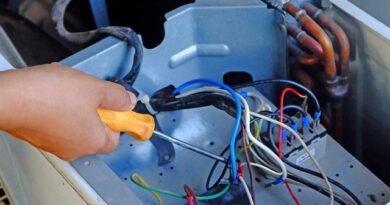How To Deal With Burnout When You Work In Recruitment
Recruiter burnout is a very real and potentially hugely detrimental phenomenon. It’s what happens when people working in recruitment have too much to deal with, and they become exhausted and frustrated. The symptoms are similar to stress, but the reasons are much more focused on the work rather than any external influences.
The reason this is a problem, other than making you feel unwell, is that it can lead to other mental health issues such as depression and anxiety. It can mean you have to step back from your career, and you even run the risk of physical ailments like heart disease and high blood pressure.
For some, they have to quit a role they are good at and previously enjoyed and do something else. With that in mind, it’s crucial to understand how to overcome recruiter burnout and even avoid it altogether. Read on for some ideas.
Have The Right Tools
Many different recruitment tools exist in today’s business landscape, and their sole purpose is to make the job of a recruitment expert easier. They will automate processes and ensure that all tasks are streamlined.
Using an applicant tracking system, for example, means that everyone who applies for a role – or multiple roles, as will usually be the case – is monitored and assessed accurately.
They can be tracked easily, no matter what stage of the application they are at, and you can quickly see what is happening with any given role, allowing for timely updates to employers and candidates.
By utilizing tools like this and many others, you can help to prevent burnout by being more organized and in control of what you are doing.
Set SMART Goals
The right software is an excellent start, and it should certainly not be underestimated. However, you’ll also need to know what your next steps are at any given time, and this is where SMART goals will be important.
SMART goals (which stands for specific, measurable, achievable, relevant, and timely) will help you understand both the smaller tasks you need to complete and the bigger picture in terms of your career or the overall direction you need to be heading in.
Working without any goals in mind can lead to burnout because decision-making is harder, and you may not feel as though you are moving forward in terms of your career or your life.
Have The Right Work-Life Balance
Working in recruitment is fast-paced and frenetic. There is always something to do and, in many cases, you will need to act fast in order to secure a candidate before someone else does. It’s no wonder that this can cause stress and burnout. Knowing this, it might be hard to have a good work-life balance.
However, although your career is always going to be important, your life is too. You’ll need to put boundaries in place; otherwise, you run the risk of never being able to relax or switch off, making burnout even more likely. Ironically, the more you work, the less productive you’ll be, so ensuring you finish at a specific time, whenever possible, is crucial and can make all the difference.




